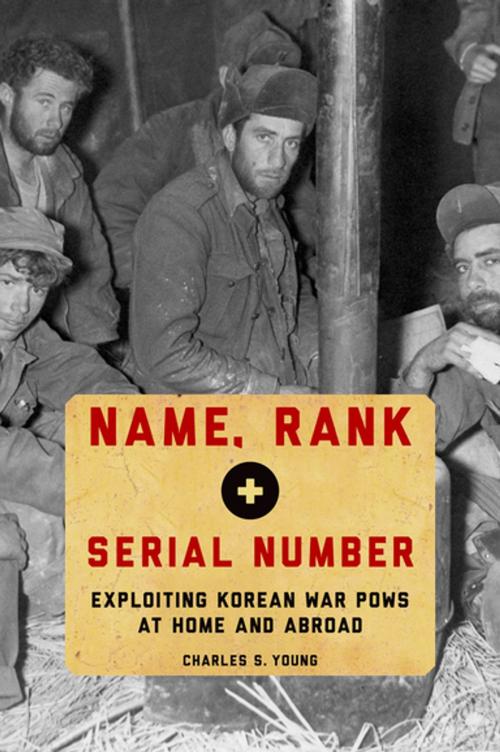Name, Rank, and Serial Number
Exploiting Korean War POWs at Home and Abroad
Nonfiction, History, Asian, Korean War, Military, Americas, United States, 20th Century| Author: | Charles S. Young | ISBN: | 9780199381838 |
| Publisher: | Oxford University Press | Publication: | April 1, 2014 |
| Imprint: | Oxford University Press | Language: | English |
| Author: | Charles S. Young |
| ISBN: | 9780199381838 |
| Publisher: | Oxford University Press |
| Publication: | April 1, 2014 |
| Imprint: | Oxford University Press |
| Language: | English |
Vietnam POWs came home heroes, but twenty years earlier their predecessors returned from Korea to shame and suspicion. In the Korean War American prisoners were used in propaganda twice, first during the conflict, then at home. While in Chinese custody in North Korea, they were pressured to praise their treatment and criticize the war. When they came back, the Department of the Army and cooperative pundits said too many were weaklings who did not resist communist indoctrination or "brainwashing." Ex-prisoners were featured in a publicity campaign scolding the nation to raise tougher sons for the Cold War. This propaganda was based on feverish exaggerations that ignored the convoluted circumstances POWs were put in, which decisions in Washington helped create.
Vietnam POWs came home heroes, but twenty years earlier their predecessors returned from Korea to shame and suspicion. In the Korean War American prisoners were used in propaganda twice, first during the conflict, then at home. While in Chinese custody in North Korea, they were pressured to praise their treatment and criticize the war. When they came back, the Department of the Army and cooperative pundits said too many were weaklings who did not resist communist indoctrination or "brainwashing." Ex-prisoners were featured in a publicity campaign scolding the nation to raise tougher sons for the Cold War. This propaganda was based on feverish exaggerations that ignored the convoluted circumstances POWs were put in, which decisions in Washington helped create.















